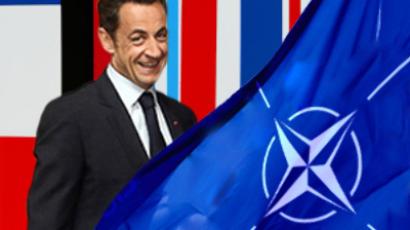New labels for Katyn massacre hamper Russo-Polish relations
The Polish parliament has adopted, without a vote or debate, a resolution that blames Russia for genocide, an allegation Moscow denies. Russia says the move will strain already tense bilateral relations.
The resolution defines the actions of the USSR towards Poland during the outbreak of World War Two as having traits of genocide.
“On September 17, 1939, without declaring war, Soviet army took aggressive action against Poland, violating its Sovereignty and international law,” the resolution said, adding that “the organization of Soviet crimes and their scale have features of genocide”.
Though the Soviet army infiltrated only the territories of Western Belarus and Ukraine that Poland had previously invaded during the Soviet-Polish war of 1919-1921, the resolution was adopted without voting.
However, the most hotly-disputed issue, and a deep thorn in relations between Poland and Russia, was in the second part of the document, referring to the mass murder of more than 20,000 Polish officers, intellectuals, policemen and prisoners of war by Soviet soldiers in Katyn in 1940.
Relatives of those massacred were present at the parliamentary session, and members of parliament hailed them by standing.
20,000 deaths between two countries
Maria Bunda-Fournier was only seven when she found out her father, Boris, a major in the Polish military, had been executed in what has become known as the Katyn massacre. The tragedy has been something she’s struggled to come to terms with her whole life.
“Finding the person responsible doesn’t matter any more as most are now dead – but we want the problem reconciled, we want to hear apologies, because if something is left unsolved you are always hurting inside,” Bunda-Fournier says.
At first, blame was placed on Nazi troops, but in 1990, the then-Russian president Boris Yeltsin acknowledged Soviet responsibility and apologized.
A Russian investigation classified the massacres as a war crime, and many resolutions adopted by the Polish parliament never used the word “genocide”. But now Poles seem keen to take it further.
However, some Polish officials, like Member of Parliament Tadeusz Iwinski, were against adopting the document, saying they want to overcome the past for the future's sake.
“Of course we have a painful history. For instance, in the 17th Century, Poles twice occupied the Kremlin, and we had Karyn. But we had positive elements too: 600 000 Russian soldiers lie in graves on our soil. Poland has three major neighbors – without hierarchy – Germany, Russia and Ukraine. With all of them, we need finally to have reconciliation,” Iwinski says.
Historians say the move is an exaggeration of the facts.
“The killing of Polish prisoners of war is a crime against humanity, but definitely not genocide. In my view, when we speak about genocide we mean the elimination of a nation or creating the conditions for this,” historian Natalya Lebedeva says.
Both countries have called for more cooperation and closer ties, but the new resolution is only likely to create more tension. The main point of contention revolves around responsibility.
On his visit to Poland to mark the 70th anniversary of the start of the Second World War, Russian Prime Minister Vladimir Putin said that the Soviet Union made mistakes. However, he called on history not to be rewritten.
What Russia firmly opposes are notions of genocide, efforts it sees to equate Stalinism with Nazism:
“I can say that the attempts to draw analogies, like the one provided in the resolution, are political. We can only regret this. Such presentation of this problem don’t encourage the development of Russian-Polish bilateral relations,” Russian Foreign Ministry spokesman Andrey Nesterenko has said. Relations which have been sour for many years.
And while the US abandonment of the planned missile defense system has got rid of one tense point, the dispute over the murder of more than 20 000 Poles is harder to reconcile.













